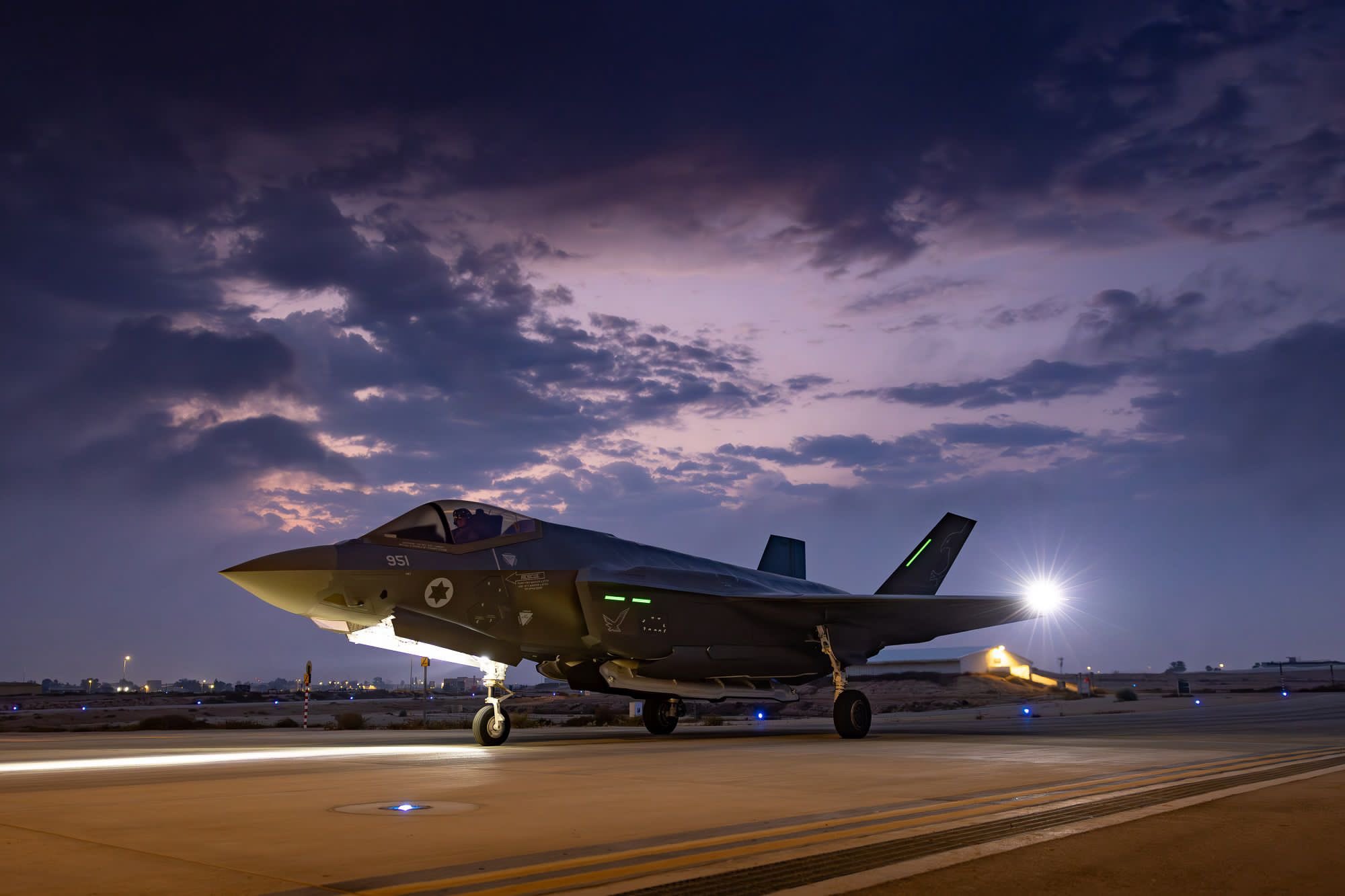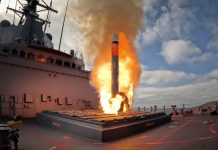Iran’s Islamic Revolutionary Guard Corps (IRGC) claims to have fired Emad and Qadr ballistic missiles with “enhanced explosive warheads” to destroy a “simulated version” of Israel’s Palmachim airbase“ where Israel’s F-35 stealth fighters are located,” a video aired by the state TV shows.
#BREAKING Iran’s IRGC says it has fired Emad and Qadr ballistic missiles with “enhanced explosive warheads” to destroy a “simulated version” of Israel’s Palmachim airbase “where Israel’s F-35 fighter jets are located,” a video aired by the state TV shows. pic.twitter.com/It6oDjjY4T
— Iran International English (@IranIntl_En) February 13, 2024
Earlier, the US officially confirmed that Israel was extensively using its F-35 stealth fighters in its military operations against Hamas and highlighted their remarkable performance.
Speaking to EurAsian Times, a former F-35 pilot, who chose to remain anonymous, said, “These fighters let Israel zero in on terrorist spots, keeping the damage low and the civilian risk in check. It’s a big deal, especially in packed places like Gaza.”
“Running those top-tier stealth fighters diminishes the resources. You’ve got to balance the cost of keeping them up and running with the benefits they bring. It’s a big deal, especially when you’re in it for the long haul.”
Dutch Court Orders Halt To F-35 Parts To Israel
On February 12, a Dutch court ordered the Netherlands government to halt all exports of F-35 fighter jet components to Israel, citing apprehensions that these parts were being utilized in breaches of international law during Tel Aviv’s offensive in Gaza.
This ruling comes in response to an appeal made by human rights organizations, which contended that supplying these parts contributed to alleged violations of international law by Israel during its conflict with the Palestinian group Hamas in Gaza.
The court’s ruling mandates the cessation of all current exports and transit of F-35 parts destined for Israel within seven days of the judgment being served.
While reading the ruling, Judge Bas Boele noted the undeniable risk that these exported F-35 parts could be utilized in severe breaches of international humanitarian law, prompting cheers from some individuals in the courtroom.
On the other hand, the Dutch government has expressed its intention to challenge the order, citing the crucial role of F-35s in Israel’s defense against threats in the region, including those posed by Iran, Yemen, Syria, and Lebanon.
The Netherlands hosts a warehouse containing US-owned F-35 parts, which are subsequently exported to various partners, including Israel, under existing export agreements to operate these fighter jets.
The human rights groups argue that by facilitating these transfers, the Netherlands is complicit in humanitarian law violations in Gaza.
In a first ruling in December, the district court in The Hague ruled that decisions regarding the supply of F-35 parts were primarily political and, therefore, not within the judiciary’s purview to intervene.
Israel’s extensive aerial and ground assault in the densely populated Gaza Strip has resulted in the deaths of over 27,000 Palestinians, as reported by the enclave’s health authorities, which Hamas controls.
This onslaught has also forced the majority of Gaza’s 2.3 million inhabitants to flee from their residences.
Israel refutes accusations of committing war crimes during its offensive in Gaza. The military operations were initiated in response to a cross-border raid by Hamas into southern Israel on October 7, during which approximately 1,200 Israelis were killed, and around 240 individuals were held hostage.
Will The Court Ruling Make A Difference?
Experts have suggested that the recent ruling is unlikely to impact the Israeli military’s operational capabilities significantly. This is attributed to their access to the availability of F-35 components from various sources.
Therefore, the decision made by the Dutch court is seen as more symbolic than having a substantial impact on Israel’s F-35 fleet.
Similarly, Legal representatives from the Dutch government have already asserted that prohibiting the transfer of F-35 parts from the Netherlands would carry limited practical significance.
They argue that the United States could fulfill these deliveries from alternate locations, rendering such restrictions ineffective.

Moreover, Dutch authorities previously expressed uncertainty regarding their jurisdiction to intervene in these deliveries, which are part of a program operated by the United States to supply components to all participating partners in the F-35 program.
However, Naks Bilal, a Research Analyst based in London, has indicated that the ruling could potentially impact a similar case currently under consideration in the High Court of the UK.
Last year, Human rights organizations appealed with the UK’s High Court, urging intervention to suspend UK arms sales to Israel.
In December 2023, a large protest involving a thousand people across Britain targeted arms factories in Bournemouth, Brighton, Lancashire, and Glasgow, effectively blockading them to prevent any movement of goods.
While Lockheed Martin serves as the primary contractor for the F-35, the aircraft is manufactured through an international coalition, with 15% of the total value of all F-35s originating from Britain.
Lockheed Martin asserts that “the fingerprints of British ingenuity can be found on dozens of the aircraft’s key components.”
For instance, BAE Systems, situated at Samlesbury Aerodrome, manufactures the rear fuselage for each F-35 aircraft. Notably, in Feb 2023, the company achieved a significant milestone by delivering its 1,000th rear fuselage for the F-35 program.
A subsidiary of L3Harris in Brighton also manufactures the release system responsible for enabling the jet to deploy its lethal ordnance.
UK-based media reported that given the nature of combat aircraft like the F-35, which necessitates extensive stockpiles of spare parts, particularly during times of conflict, it is conceivable that numerous companies among the 79 holding open licenses to export F-35 components from the UK may be supplying spare parts to sustain the operation of these jets over Gaza.
- Contact the author at ashishmichel(at)gmail.com
- Follow EurAsian Times on Google News




